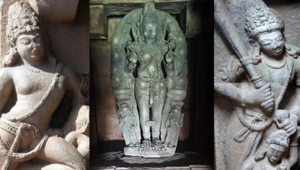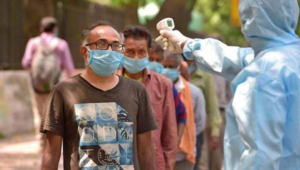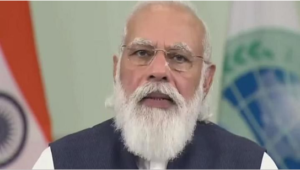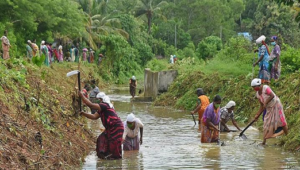
Important Parliamentary Committees in Detail
We have so far seen the list of Parliamentary Committee in Lok Sabha and Rajya Sabha. We have also seen the difference between Joint Committees and Select Committees. In this article, let us explore the details of some of the important Parliamentary Committees like Committee on Estimates, Committee on Public Undertakings, Committee on Public Accounts etc.
Important Committees which act as Parliament’s ‘Watch Dogs’ over the executive (Select and Joint)
- Committees on Subordinate Legislation
- Committee on Government Assurances
- Committee on Estimates (Select committee of LS)
- Committee on Public Accounts (PAC)
- Committee on Public Undertakings (PUC)
- Department Related Standing Committees (DRSCs)
PS: The Committee on Estimates, the Committee on Public Accounts, the Committee on Public Undertakings (NB: These three comes under the category of Finance Committees) and DRSCs play an important role in exercising a check over governmental expenditure and Policy formulation.
Committee on Estimates
This Committee consists of 30 members who are elected by the Lok Sabha every year from among its members. A Minister is not eligible for election to this Committee. The term of the Committee is one year. The main function of the Committee on Estimates is to report what improvements in organisation, efficiency, or administrative reform, consistent with the policy underlying the estimates may be affected. They suggest alternative policies in order to bring about efficiency and economy in administration.
- NB: From time to time the Committee selects such of the estimates pertaining to a Ministry or a group of Ministries or the statutory and other Government bodies as may seem fit to the Committee.
- NB: The Committee also examines matters of special interest which may arise or come to light in the course of its work or which are specifically referred to it by the House or the Speaker.
Committee on Public Undertakings
The Committee on Public Undertakings consists of 15 members elected by the Lok Sabha and 7 members of Rajya Sabha. A Minister is not eligible for election to this Committee. The term of the Committee is one year.
The functions of the Committee on Public Undertakings are—
- (a) to examine the reports and accounts of Public Undertakings.
- (b) to examine the reports, if any, of the Comptroller and Auditor General on the Public Undertakings.
- (c) to examine in the context of the autonomy and efficiency of the Public Undertakings whether the affairs of the Public Undertakings are being managed in accordance with sound business principles and prudent commercial practices.
- (d) such other functions vested in the Committee on Public Accounts and the Committee on Estimates in relation to the Public Undertakings as are not covered by clauses (a), (b) and (c) above and as may be allotted to the Committee by the Speaker from time to time.
- NB: The Committee does not, however, examine matters of major Government policy and matters of day-to-day administration of the Undertakings.
Committee on Public Accounts
This Committee consists of 15 members elected by the Lok Sabha and 7 members of the Rajya Sabha. A Minister is not eligible for election to this Committee. The term of the Committee is one year.
The main duty of the Committee is to ascertain whether the money granted by Parliament has been spent by Government “within the scope of the Demand”. The Appropriation Accounts of the Government of India and the Audit Reports presented by the Comptroller and Auditor General mainly form the basis for the examination of the Committee. Cases involving losses, nugatory expenditure and financial irregularities come in for severe criticism by the Committee. The Committee is not concerned with questions of policy. It is concerned only with the execution of the policy laid down by Parliament and its results.
Business Advisory Committee (Lok Sabha)
The Business Advisory Committee of Lok Sabha consists of 15 members including the Speaker who is the ex-officio Chairman. The members are nominated by the Speaker. Almost all sections of the House are represented on the Committee as per the respective strength of parties in the House. The function of the Committee is to recommend the time that should be allotted for the discussion of such Government legislative and other business as the Speaker, in consultation with the Leader of the House, may direct to be referred to the Committee. The Committee, on its own initiative, may also recommend to the Government to bring forward particular subjects for discussion in the House and recommend allocation of time for such discussions. The decisions reached by the Committee are always unanimous in character and representative of the collective view of the House. The Committee generally meets at the beginning of each Session and thereafter as and when necessary.
Committee on Private Members’ Bills and Resolutions (Lok Sabha)
This Committee consists of 15 members and the Deputy Speaker is its Chairman when nominated as a member of he Committee. The Committee is nominated by the Speaker. The functions of the Committee are to allot time to Private Members’ Bills and Resolutions, to examine Private Members’ Bills seeking to amend the Constitution before their introduction in Lok Sabha, to examine all Private Members’ Bills after they are introduced and before they are taken up for consideration in the House and to classify them according to their nature, urgency and importance into two categories namely, category A and category B and also to examine such Private Members’ Bills where the legislative competence of the House is challenged. The Committee, thus, performs the same function in relation to Private Members’ Bills and Resolutions as the Business Advisory Committee does in regard to Government Business. The Committee holds office for a term not exceeding one year.
Rules Committee (Lok Sabha)
The Rules Committee consists of 15 members including the Speaker who is the ex-officio Chairman of the Committee. The members are nominated by the Speaker. The Committee considers matters of procedure and conduct of business in the House and recommends any amendments or additions to the Rules of Procedure and Conduct of Business in Lok Sabha that are considered necessary.
Committee of Privileges (Lok Sabha)
This Committee consists of 15 membersnominated by the Speaker. The function is to examine every question involving breach of privilege of the House or of the members of any Committee thereof referred to it by the House or by the Speaker. It determines with reference to the facts of each case whether a breach of privilege is involved and makes suitable recommendations in its report.
Committee on Papers Laid on the Table (Lok Sabha)
This Committee consists of 15 members nominated by the Speaker. Its function is to examine all papers laid on the Table of the House by Ministers (other than those which fall within the purview of the Committee on Subordinate Legislation or any other Parliamentary Committee) and to report to the House—(a) whether there has been compliance of the provisions of the Constitution, Act, rule or regulation under which the paper has been laid, (b) whether there has been any unreasonable delay in laying the paper, (c) if there has been such delay, whether a statement explaining the reasons for delay has been laid on the Table of the House and whether those reasons are satisfactory, (d) whether both the Hindi and English versions of the paper have been laid on the Table, (e) whether a statement explaining the reasons for not laying the Hindi version has been given and whether such reasons are satisfactory, (f) such other functions in respect of the papers laid on the Table as may be assigned to it by the Speaker from time to time.
Committee on Petitions (Lok Sabha)
The Committee consists of 15 members nominated by the Speaker. A Minister is not nominated to this Committee. The function of the Committee is to consider and report on petitions presented to the House. Besides, it also considers representations from individuals and associations, etc. on subjects which are not covered by the rules relating to petitions and gives directions for their disposal.
Committee on Subordinate Legislation (Lok Sabha)
The Committee consists of 15 members nominated by the Speaker. A Minister is not nominated to this Committee. The Committee scrutinizes and reports to the House whether the powers to make regulations, rules, sub-rules, by-laws etc. conferred by the Constitution or delegated by Parliament are being properly exercised by the executive within the scope of such delegation.
Committee on Government Assurances (Lok Sabha)
This Committee consists of 15 members nominated by the Speaker. A Minister is not nominated to this Committee. While replying to questions in the House or during discussions on Bills, Resolutions, Motions etc., Ministers at times give assurances or undertakings either to consider a matter or to take action or to furnish the House further information later. The functions of this Committee are to scrutinize the assurances, promises, undertakings etc. given by Ministers from time to time and to report to Lok Sabha on the extent to which such assurances etc. have been implemented and to see whether such implementation has taken place within the minimum time necessary for the purpose.
Committee on Absence of Members from the Sittings of the House (Lok Sabha)
The Committee consists of 15 members who hold office for one year. The members are nominated by the Speaker. This Committee considers all applications from members for leave of absence from the sittings of the House and examines every case where a member has been absent for a period of 60 days or more, without permission, from the sittings of the House. In its report it makes recommendations with respect to each case as to whether the absence should be condoned or leave applied granted or whether the circumstances of the case justify that the House should declare the seat of the member vacant.
Joint Committee on Offices of Profit
This Committee consists of 15 members. Ten members are elected from Lok Sabha and five from Rajya Sabha. The Committee is constituted for the duration of each Lok Sabha.
The main functions of the Committee are to examine the composition and character of the Committees appointed by the Central and State Governments and to recommend what offices should disqualify and what offices should not disqualify a person for being chosen as, and for being, a member of either House of Parliament under article 102 of the Constitution.
Committee on the Welfare of Scheduled Castes and Scheduled Tribes (Joint)
The Committee on the Welfare of Scheduled Castes and Scheduled Tribes consists of 20 members elected by the Lok Sabha and 10 members of Rajya Sabha are associated with it. The term of the Committee is one year. A Minister is not eligible for election to this Committee. The main functions of the Committee are to consider all matters concerning the welfare of the Scheduled Castes and Scheduled Tribes, falling within the purview of the Union Government and the Union Territories, to consider the reports submitted by the National Commission for Scheduled Castes and Scheduled Tribes and to examine the measures taken by the Union Government to secure due representation of the Scheduled Castes and Scheduled Tribes in services and posts under its control.
Railway Convention Committee (Ad-hoc)
The Railway Convention Committee is an ad-hoc Committee. It consists of 18 members. Out of these, 12 members are from Lok Sabha nominated by the Speaker and 6 members are from Rajya Sabha nominated by the Chairman. By convention the Minister of Finance and the Minister of Railways are members of the Committee. Besides this, Ministers of State in the Ministry of Finance and Ministry of Railways respectively are also its members.
The main function of the Committee is to review the Rate of Dividend payable by the Railways undertaking to General Revenues as well as other ancillary matters in connection with the Railway Finance vis-a-vis the General Finance and make recommendations thereon. The Railway Convention Committee, 1949 was the first Committee after independence. This Committee and subsequent Committees confined themselves to determining the rate of dividend payable by Railways to General Revenues. Since 1971 the Railway Convention Committees have been taking up subjects for examination and report which have a bearing on the working of Railways.
Committee on Empowerment of Women
The Committee consists of 30 members, 20 nominated by the Speaker from amongst the members of Lok Sabha and 10 nominated by the Chairman, Rajya Sabha from amongst the members of the Rajya Sabha. The term of the Committee is of one year. The Committee have been primarily mandated with the task of reviewing and monitoring the measures taken by the Union Government in the direction of securing for women equality, status and dignity in all matters. The Committee would also suggest necessary correctives for improving the status/condition of women in respect of matters within the purview of the Union Government. Besides, another important function of the Committee is to examine the measures taken by the Union Government for comprehensive education and adequate representation of women in Legislative bodies/services and other fields. The Committee would also consider the report of the National Commission for Women. The Committee may also examine such other matters as may seem fit to them or are specifically referred to them by the Lok Sabha or the Speaker and the Rajya Sabha or the Chairman, Rajya Sabha.
Important Parliamentary Committees in Detail












